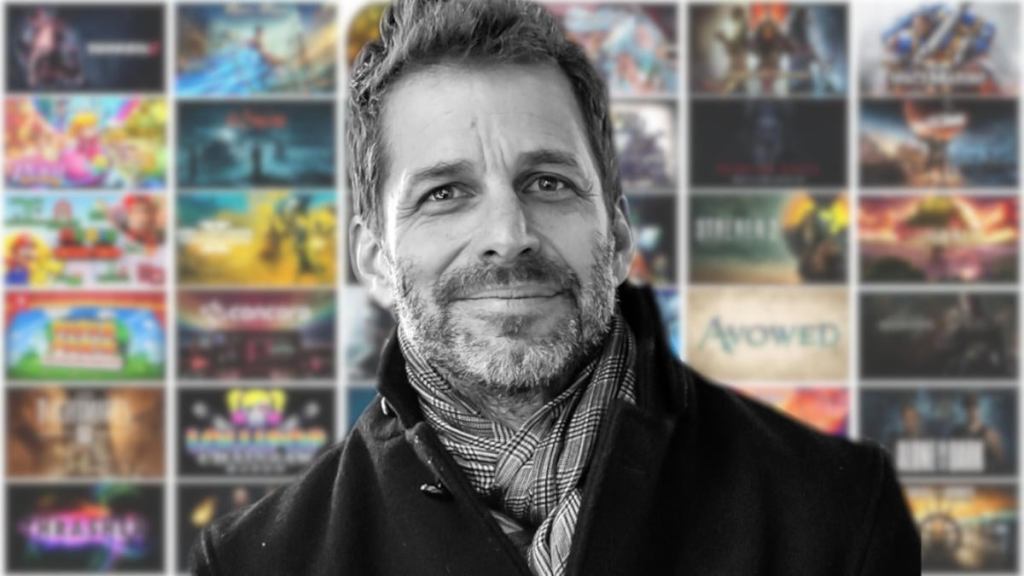After seeing two Rebel Moon movies on Netflix, one thing seems pretty clear: Zack Snyder should switch to directing video games.
Videos by ComicBook.com
That’s not a shot at Snyder or the gaming industry – it’s just an observation about two puzzle pieces that could fit well together.
Rebel Moon: Part One and Rebel Moon: Part Two have cemented Snyder’s visual style as being heavily created through the use of CGI over practical effects. Netflix and Snyder’s two-part sci-fi saga has also been praised and/or criticized for being arguably the most self-indulgent project Snyder has put out, in terms of having complete control over visual iconography, story, pacing, and release strategy. In that sense, even the most loyal Snyder fans have found it harder to justify the idea of getting Rebel Moon in two PG-13 cuts while teasing that R-rated director’s cuts will follow, or to rationalize some of the shortcomings that can be found in each film, since they are, incurably Snyder’s work.
More to the point: Netflix is infamously much more of a ‘cut the check’ studio, than Snyder’s previous partner (Warner Bros.), and unlike the filmmaker’s most (in)famous works (300, Watchmen, Man of Steel, Batman v Superman, Justice League), Rebel Moon is an original IP that Snyder created. That’s all to say: these films are, in many ways, the truest example we have of who Zack Snyder is as a filmmaker and storyteller – and based on that assessment, it’s fair to suggest that he’s more suited to gaming than cinema.
Why Zack Snyder Would Be A Great Gaming Director

As stated, visual iconography is Snyder’s greatest and most admiral signature as a director. Whether its historical legends (300) and/or literary mythology (Legend of the Guardians, Watchmen, DC Comics) Snyder is known for capturing many great and iconic shots that evoke so many deeper meanings and metaphors – or at the very least, are stunningly gorgeous and memorable to look at. Where Snyder tends to get criticized is in the crafting of story, pacing, and characterization. Even though he creates sprawling worlds and deep mythos for each of his cinematic universes (Army of the Dead, Rebel Moon), the actual stories created within each of those universes never seems to fit the restrictions of theatrical film (namely focus and runtime), while his “characters” often feel more like walking archetypes than compelling and interesting people.
…And therein lies the reason why Snyder is a gaming director just waiting for a breakout. All of Snyder’s talent for creating immersive worlds, complex mythology, and iconic character archetypes is everything a gaming director should excel at. Snyder’s shortcomings – having enough time and space to tell the story, with characters fans can emotionally resonate with – would arguably become irrelevant within the framework of a game. Snyder wouldn’t need to inject personality or reliability into his characters – game players would do that on their own when taking control of a playable protagonist, antagonist or supporting character. Run time would also be a non-issue in a game that’s designed to run for 40+ hours of gameplay (like Death Stranding) – which is definitely about the size we’d expect for a Zack Snyder game. And it goes without saying, with Snyder at the helm, a game’s cut scenes would be next-level, and his signature slow-mo shots much more appreciated.
This prospect gets even better when you look at the possibilities of Snyder teaming with some of gaming’s greatest video game creators or studios, like Hideo Kojima, Gabe Newell, Hironobu Sakaguchi or countless other new designers. With Snyder’s imagination being guided by those familiar with storytelling in game form, it would likely end up being a pretty sick collaboration.
Would you like to see what Zack Snyder could do as a video game director?








